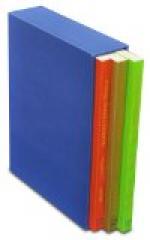“Father,” said Thomas, “how miserable we should be if we had no water to drink this weather, like those poor Arabs that you told us of the other day.”
“Yes,” answered Mr. Harvey, “the sun must be burning hot in Arabia now.”
“How can they live in such a place?” asked John.
“They are not all so miserable as the party I told you of the other day,” replied his father. “Besides, you know it is their country, and God has taught them to love it. If an Arab were brought here, he would, probably, think it a most dreary land, except in summer.”
“But what do you do in town, Samuel,” asked John, “when it is too warm to go out?”
“It is very hot only in the middle of the day,” replied his cousin, “and then, you know, we are at school. In the afternoons, I sometimes rode out with father, or went on the steamboat. Last week a balloon went up, from the other side of the river. We had a fine view of it from the roof of our house. Two men were in it, and when they had risen so high that the balloon appeared quite small, they threw out a little machine, called a parachute. It looked something like an umbrella, and had a dog to it. The balloon sailed a great distance through the air, and came down safely.”
It was now six o’clock, and Mr. Harvey told the boys that they might go to supper, which he had ordered to be ready earlier than usual.
[Illustration]
CHAPTER II.
The evening walk.
After supper, Samuel and his cousins took a walk in the meadow, toward the mill pond. The air was now cool and pleasant, and as the boys moved through the narrow path, among the low grass, thousands of grasshoppers, and other insects, filled the air with their cheerful hum. Thomas, with his companions, passed round the mill, and then climbed a fence which led through a field of corn. The corn was not very high, so that they had to be careful not to tread upon it. When they reached the other side, Samuel saw that the fence was covered with raspberry vines, from one end to the other. He asked what they did with so many. “All that father wishes to use, or to eat,” replied Thomas, “he gathers out of the garden; but these he leaves for two or three poor families, who live not far off, and who take them to town to sell. It helps them to pay their rent.”
“And does he give away blackberries, too?” asked Samuel.
“Yes, and many other kinds of fruit,” replied his cousin. “He has such large fields and orchards, that he can afford to give away great quantities of apples, peaches, currants, grain, and vegetables.”
[Illustration: The old SOLDIER’S house.]




